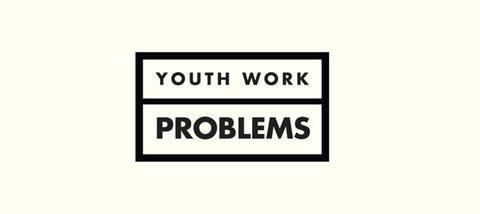
DEAR YOUTH WORK PROBLEMS,
I’m a youth worker and my teenage daughter has just joined my group. Will it work to be my child’s youth leader, or is that detrimental to both of us? Am I a parent or a leader in those settings?
Being your child’s youth minister is full of implications for you, your child, other workers and other young people. If you can understand just what these implications are then there are some simple steps you can take to dodge the minefield of potential problems.
Your presence in the group can have a huge impact on your child. First and foremost, you are their parent and that relationship has to be kept intact. I haven’t always got this right and there have been nights when my daughter left in tears after she thought I’d told her off! Give your child the right to choose which events they attend; if you make everything obligatory they will quickly resent you, your role and the church.
You must understand that their peers will view your child differently. Their close friends might be used to your role at church but it can be a very different matter when you are doing assemblies for their whole year group. On these days I often let my daughter choose my outfit or let her hear the assembly in advance to get her thoughts. At times your child will also become an information point for your youth ministry. Whether at school or by text at home there are often questions asked about what time a group is starting or when money needs to be in for a trip. This can be a great opportunity as your child has a personal connection with lots of people that may come along to events you run, but they’ll soon get fed up if they are a walking advert for all your work.
There will also be an impact on your youth ministry as you are no longer viewed as just the youth minister but also a parent. Living in these dual roles requires clear boundaries, for example with the parents of your child’s friends. I am clear to point out to these parents that when I am at home I am my daughter’s mother and not the youth minister. This means that I don’t need to have a second DBS-checked adult present and risk assess any game they play. This similarly applies to any trips we take to the cinema with friends that aren’t church events. Explaining this to parents avoids any confusion and allows parents to consider the dual role you inhabit. On the same note, I am therefore careful not to overly promote church events in my role as mother, however tempting that can be.
An impact is also felt in the rest of your team who can feel as though they have a potential spy within their group. I am fortunate to work within a large youth programme where volunteers and other paid staff run some of the groups. This allows me to either run alternative groups or oversee the whole ministry where necessary, placing my daughter in groups that I don’t lead. A new member of staff warned me recently that my daughter may come home with tales of badly behaved boys after a chaotic session. This comment allowed me to reflect on how the volunteers and staff view my daughter within the group. Will she report back and tell me their shortcomings? Is she a spy in their groups? This was another important boundary to identify and discuss. My leaders were thankful that this would not be the case and were able to relax more in their leading of the group.
Thinking through the impact of your role in advance of your child entering your youth ministry is really helpful. Situations will occur that require further reflection along the way but putting the following actions into practice has really helped us:
LIVING IN THE DUAL ROLES OF PARENT AND YOUTH WORKER REQUIRES CLEAR BOUNDARIES
Communicate regularly. This sounds obvious, but each year the boundaries may have to be redrawn and understood – don’t assume that a one-off conversation will be enough. Chats after groups can also reveal all sorts of useful information.
Give choice. Allow your child some freedom to choose which events they attend. I don’t automatically book my daughter in for every church activity but ask her first and encourage her to complete her own reply slips.
Agree in advance how to tackle any discipline or friendship issues that may arise at. They will occur and knowing how to handle them in advance avoids a meltdown in front of everyone.
Do you have a youth work problem? Email us at youthwork@premier.org.uk or tweet us @youthworkmag #youthworkproblems
Use other leaders where possible. Try to find other people to lead groups they are involved in. We have also set up a mentor for our daughter who takes her for a coffee once a month to chat through all the things she’d probably say to a youth worker.
Be careful what you discuss at home or what is overheard on the phone. The background conversations, for example, a difficulty with a leader or a complaint from a parent, will not be helpful knowledge for your child.
Prayer works and is probably the best preparation you can do. I am very thankful that God’s grace is vast enough to cover the mistakes I know I will make.
There are some great opportunities that having your child present provides – just be careful not to take them all! Finally a bit of advice from my daughter: ‘It’s quite hard but your Mum or Dad needs to know that there are loads of other adults we can talk to if we need to. Sometimes it’s actually quite nice to know that you have someone in your family in your youth group for a quick hug if you need it!’




























